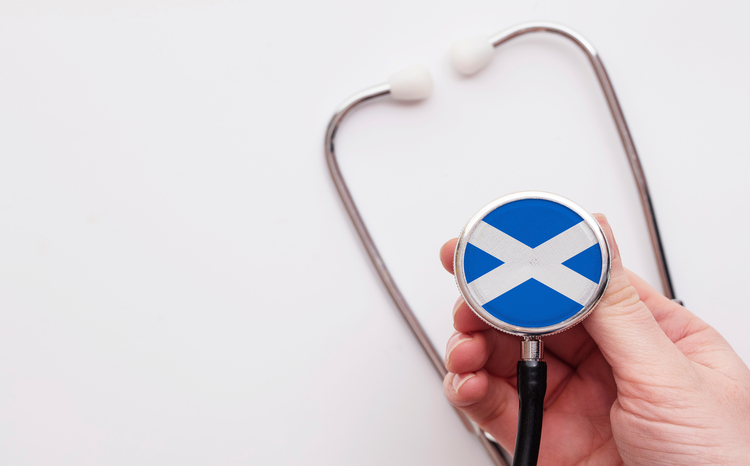Personal view: Mary Hawking
- 20 August 2009
 |
|
Mary Hawking |
Mary Hawking, a GP and critical friend of NHS IT, asks: are your records fit for sharing?
There has been a lot of work put into sharing information electronically, with an assumption that sharing clinical records will lead to better patient outcomes.
Appropriate sharing of information always has been important; remember the old joke about the referral letter that said: “Dear Consultant, please see and advise, yours sincerely, GP” and the reply: “Dear GP, seen and advised, yours sincerely, Consultant”?
With Electronic Patient Records in the GP sense (meaning all or most information held only electronically), we can provide access to full or summary records to urgent care, secondary care and out of hours to everybody’s benefit – especially the patient’s!
However, putting aside for the moment the privacy, organisational and legal problems involved – have you considered the quality of the information being shared?
Asking the question
Most of the definitions of data quality are from management perspectives, and a lot of good work is being done to improve data quality at this level in the NHS.
However, I am concerned that these standards – even if observed – would be insufficient to ensure that information being shared at single patient record level is fit for purpose; when the purpose is the safe medical care of that individual patient.
For instance, the Quality and Outcomes Framework used for GP performance-related pay in the UK produces useful data on the prevalence and management of selected chronic diseases such as diabetes mellitus. But this is aggregated and incentivised data; even in high performing practices, is the information as good in areas not covered by QoF and at individual patient level?
There are a number of different initiatives being implemented to enable widespread and routine sharing of EPRs or extracts as an essential element in re-organising and improving delivery of routine and urgent care and – especially – allowing access by emergency services and secondary care.
From summary records such as the Summary Care Record, EHI and the Individual Health Record, to single shared records such as TPP SystmOne and Lorenzo, to virtual shared EPRs such as EMIS Web in Liverpool, Tower Hamlets and Gateshead, and the uploaded repositories of entire records such as the Graphnet applications in Hampshire, these all appear to be based on the assumption that the records being shared are fit for the purpose of being shared.
And I can’t find any evidence that they are at present. So what are the potential problems, how can we identify them, establish standards to make sure that EPRs are as useful to the users of the shared record as to the originators, and identify the gaps and the training needed to attain the goals of safe, useful and reliable sharing for the benefit of all concerned?
Some partial answers
Within a practice or organisation, records are held in a way that is fit for purpose for that organisation – in the case of EPRs this is for looking after individual patients, the practice population and managing the business of the practice (including QOF).
There is no need to keep EPRs in a form fit for sharing with other parts of the NHS – even if anyone had agreed the form needed for such sharing.
Single Shared Electronic Patient Records have their own problems – as addressed in a Royal College of General Practitioners report ‘Shared Record Professional Guidance’ – but the issue of data quality when sharing EPRs is wider than that, and affects all forms of shared EPRs.
The IM&T Directed Enhanced Service (one of the payment mechanisms under the new GMS contract) was introduced to improve and accredit data quality in general practice. However, only 70% of practices applied for it – and some will have failed the data accreditation which was one component. So in around a third of practices we either don’t know the quality of the data – or know it did not get accreditation.
The Summary Care Record quite rightly only accepts records from practices holding data accreditation – so does this mean that one third of patients will not be able to have a SCR? How will that affect patient care in local health communities, where the SCR is a fundamental part of urgent care planning and making medication records – in particular – available on hospital admission?
The IM&T DES ended on 31 March 2009; what levers are there to encourage good data quality in general practice – or in the community where EPRs are being introduced for the first time?
Quite apart from data quality as judged by PRIMIS+ – which depends on analysis of coded data and linked items such as medication – how fit for transfer are whole records?
My practice has been using GP2GP record transfer for almost two years; we use the record but check against the paper record when it arrives. A recent audit showed that 16% of incoming records were not fit to be incorporated into our database without major additions from the paper record.
GP2GP only operates across two systems at present – EMIS and INPS – but assuming that this is a true estimate of EPRs not fit for purpose, how will that affect the safety of the individual patients concerned, when their clinical records are shared for their individual care in other circumstances?
Starting in hope of perfection
We all have a tendency to regard records as being accurate and dependable. How do you know they are? And is it safe to assume that other people’s records – created for their needs, not yours – are necessarily accurate, complete and free from error?
The potential of IT to share EPRs to improve patient care is vast; it is worth the effort of identifying problems in automated sharing at this stage, and developing the means of addressing them – and learning from difficulties.
Already some types of essential information are more likely to be accurate and up to date than others. Repeat prescribing was the killer application for GPs in the 1990s, and adverse reactions assist this; medication errors are among the commonest causes of medical harm.
Providing there is a realisation that shared records may not be prefect, some information is bound to be better than none. We can live in hope of perfection!
Links: Shared Record Professional Guidance was published by the RCGP this week. More information about PRIMIS+ is on its website.
About the author: Mary Hawking is a GP in Dunstable, Bedfordshire, with an abiding interest in health informatics and medical records – especially electronic ones – and all the issues surrounding them. She is a member of the NHS Faculty of Health Informatics, the BCS’ PHCSG, a committee member of the EMIS NUG, and level 3 UKCHIP. “Also a believer in networking and discussion!”
Write for the site: Is there a subject you feel strongly about? If so, why not submit a “personal view” to Lyn Whitfield, managing editor, E-Health Insider. Articles should be no more than 800 words in length and will be subject to editing.




